‘ICEF Is Doing Everything to Ensure That Scientists Are Engaged in Research, Not Paperwork’
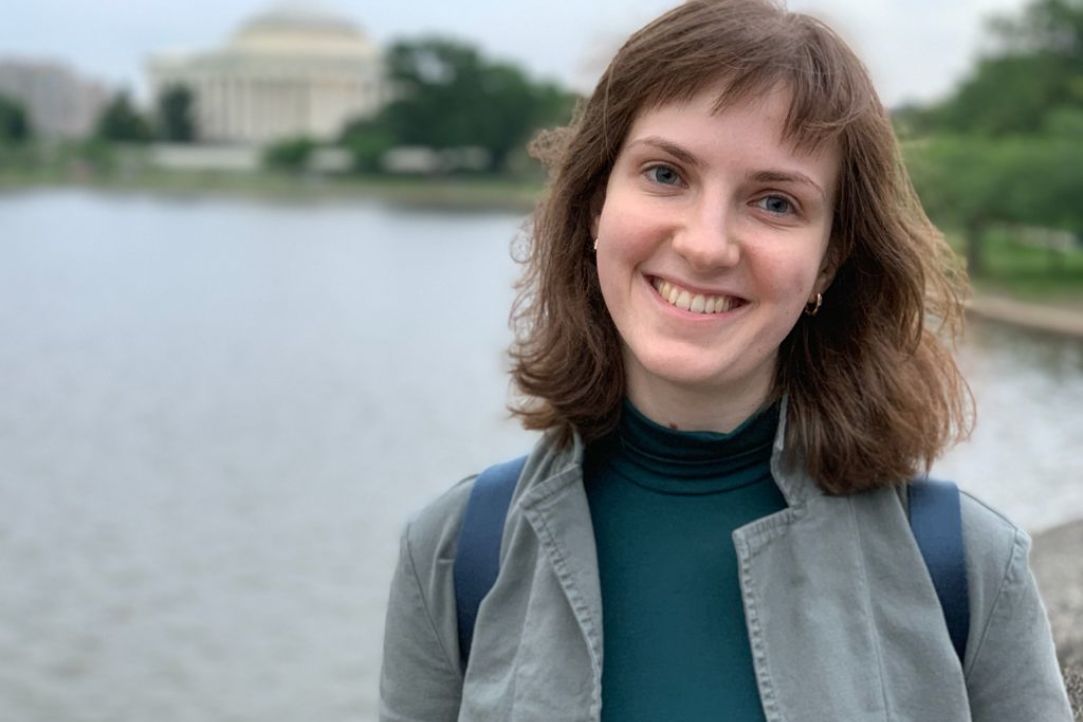
Tatiana Mayskaya, a graduate of Moscow State University (MSU) and the California Institute of Technology (Caltech), began working at HSE University in 2017. She currently teaches courses at ICEF and FES and researches behavioural economics and information economics. In this interview, Ms Mayskaya explains how throwing darts can help in the choice of a PhD programme, how the ‘multi-armed bandit’ phenomenon is useful for business and why HSE is the ideal place to do research.
What did you enjoy doing as a student, and what role did that play in your decision to specialise in information economics?
I have always been interested in everything related to the collection of information. Nowadays, a lot of information is freely available and I am attracted to interacting with it in terms of time and mental capabilities. My research interests lie at the intersection of mathematics and economics and are related to theoretical models and problems of optimising the collection of information — when it is necessary to understand the phenomenon of decision-making based on the data a person chooses.
I am a mathematician by nature. I like the process of solving problems, of looking for an answer when everything you need is given. For example, a person has to make decisions in life that greatly influence their subsequent path and vocation. Making such decisions myself led me to think that it would be good to study this process in general.
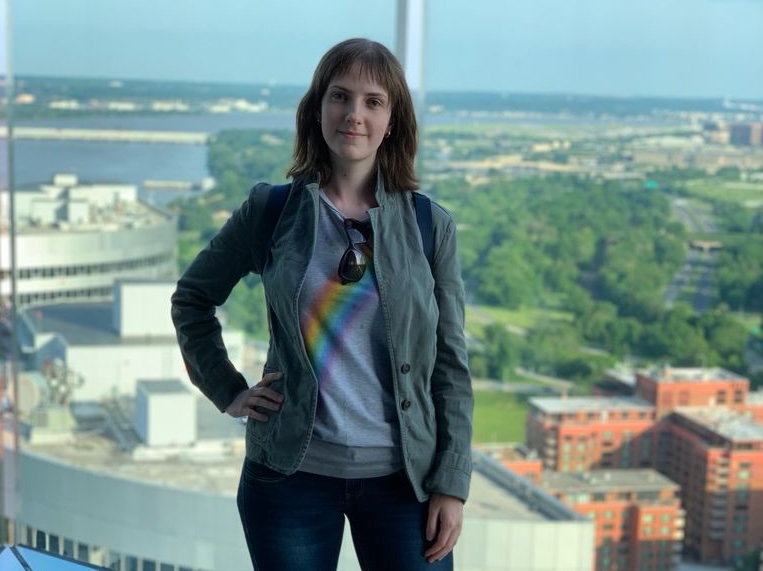
For me, one important such decision came in 2012, when I had to choose to which PhD programmes to apply. The problem was the lack of useful information about the programmes: aside from their ratings, it was very unclear exactly how they differed.
I wound up choosing a PhD programme by throwing darts at a map of the U.S., one of which landed on the California Institute of Technology
Although it was a radical method, it motivated me to explore human decisions — that are ultimately shaped by certain data, or the absence of such data.
Why a map of the US and not, say, Australia or South Africa?
If you go to America for a PhD, it turns out that the whole world is open to you. I am grateful to Andrey Bremzen [NES Assistant Professor of Economics and specialist in Auction and Game Theory – Ed.] who told me this in time. When I walked into his office, I was sure I wanted to study in Europe because it is closer. But as I left his office, I already had the firm conviction that I would apply only to schools in the U.S. because you can enter PhD programmes there immediately after earning a bachelor’s degree. But I still began my studies there with a master’s degree. In general, there are advanced laboratories in many parts of the U.S., and especially in California, where you can get truly unique experience working with scientists and projects. Programmes in the U.S. also provide good connections with the academic community and industry, not to mention salary prospects. This ‘switch’ in my decision is my personal example of how one conversation can change your whole life.
As an academic, what authority do you hold for today’s students?
I catch myself thinking that I am copying the behaviour of my academic advisor at Caltech, where I earned my PhD. He gave me a lot of freedom, meaning that I had to formulate my inquiries so that it was clear when and how to approach them. The initiative should always come from the student and I lost time before I finally understood that. My door is always open to students. They can walk in or send me an email, but it’s important for me to develop their autonomy and awareness so that students understand that this is what they need first of all. It is good to develop students’ self-organisation and research skills as early as their undergraduate years. Therefore, academic mentoring is ideally a balance of freedom and targeted advice on specific questions.
What was the most difficult part of earning a PhD?
The enormous stress of having almost total independence and of having to constantly search for hypotheses and test them. In this sense, Caltech is one of the most extreme universities for ‘going solo’. PhD students have total freedom. As a result, when I had to enter the academic job market during my final year of study, I was terribly lacking in practical skills in teaching and in how to work in a research institute and present myself to the academic community.
This is a toolkit for graduates to begin working in their profession, and it is just as necessary in the academic world as in business. It isn’t obvious for people who have already built a career that a student might not understand how to write an article, give a lecture or be interviewed.
I am comfortable with research that doesn’t pan out; it is a normal part of academic experience
It happens that this or that model doesn’t work out. In a sense, this is upsetting in a good way because it becomes a challenge that you need to overcome. But what is truly frustrating is how difficult it is to publish and the lack of clear criteria for the scientific publications market. The success of a publication and its inclusion in a particular journal largely depends on your communication skills, on whom you know, where you have presented your research and your connections in the academic world in general.
Sadly, this is a natural process of survival in the market because there are many more people in the profession than there is space in journals. This barrier is now the most difficult issue in my career because the process of gaining credibility in the scientific community is not predictable or measurable. There are many considerations in the selection process and to understand them, you need to ‘be your own person’ in the scientific community. Editors and audiences change, and along with them the spirit and focus of the journal. It is an exclusive club of sorts, and you can only gain access to it by, for example, taking part in equally exclusive conferences at which it is extremely difficult to present a paper.
Which tools to use and which steps to take to obtain a certain result? This ‘phenomenon’ of the academic world concerns scientists in addition to the phenomena they study in their work. I have many interesting projects but not a single publication. This weighs on me and there’s no solution in sight.
Your field is information economics and behavioural economics. What type of phenomenon would you like to ‘hack’ in these fields?
While studying and teaching, I did not make a radical change in direction but used different approaches. For example, at Caltech, I focused on the ‘multi-armed bandit’ phenomenon. This is a key method that I apply in my subject areas. Each slot machine in a casino has a lever, an ‘arm’ that you pull after which you wait for your winnings. The slang for a whole row of such machines is a ‘multi-armed bandit’, and when you approach that row, you don’t know which machine to choose, the probability of a ‘payoff’ or how the winnings are distributed between the machines.
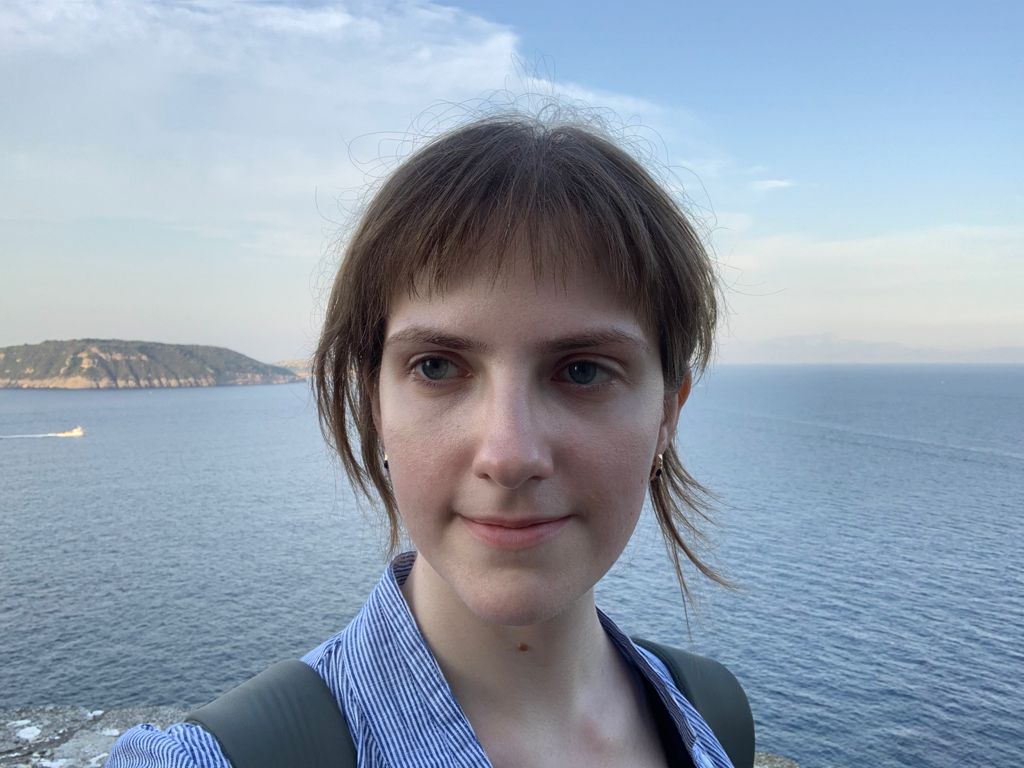
And the more often you ‘test the bandit’ by pulling the arm or lever, the more you learn, receiving not only winnings but also information. In practice, the ‘bandit’ might be some project or medicine. How to allocate resources between projects? In which order should the medication be taken? These are important life questions and so the phenomenon has become extremely popular in optimal control theory.
Around the 2000s, ‘multi-armed bandits’ found an application in the economy. For example, economists study situations in which several participants pull the arms of ‘bandits’ while observing each other’s winnings. I am very glad that I work at a major university and can communicate with colleagues from different fields because the current task is interdisciplinary and requires constant expertise from related areas.
Is there some type of industry application of the ‘bandit’ phenomenon?
Definitely, for example, in consulting or any project related to forecasting and analytics. Before choosing a company’s development strategy or launching a product on the market, you need to collect information, conduct analytics and do research. Information processing and results are often modelled using the ‘bandit’ method. The collection of information must take place over time: today we study the prospects of one project, and tomorrow, depending on today’s results, we either continue to collect information about the same project or move on to another.
You are also studying the phenomenon of ‘self-confidence’ in behavioural economics. What is that?
I am working with Arina Nikandrova (City, University of London) and Marcelo Fernandez (Johns Hopkins University) on an article in which we consider the dynamic model of an overconfident information-gathering agent. In this case, overconfidence is an overestimation of the accuracy of the information consumed. Imagine a student who, after a quick, five-minute perusal of a textbook assumes that he understands all of it. He is mistaken.
We ask what the optimal contract would be for such an agent. In particular, should a rational principle — a teacher in the case of a student agent — force the overconfident agent to ‘commit’, that is, to determine in advance how long it will take to collect information before a decision is made. If the agent is rational, it is definitely disadvantageous to do so. For example, if in the process of reading a textbook it turns out that the material is rather difficult, then it would be good to study it longer. If the level of self-confidence is high enough, then it is beneficial to make the agent decide in advance when the deadline is. Otherwise, the risk is high that the agent will collect too little information.
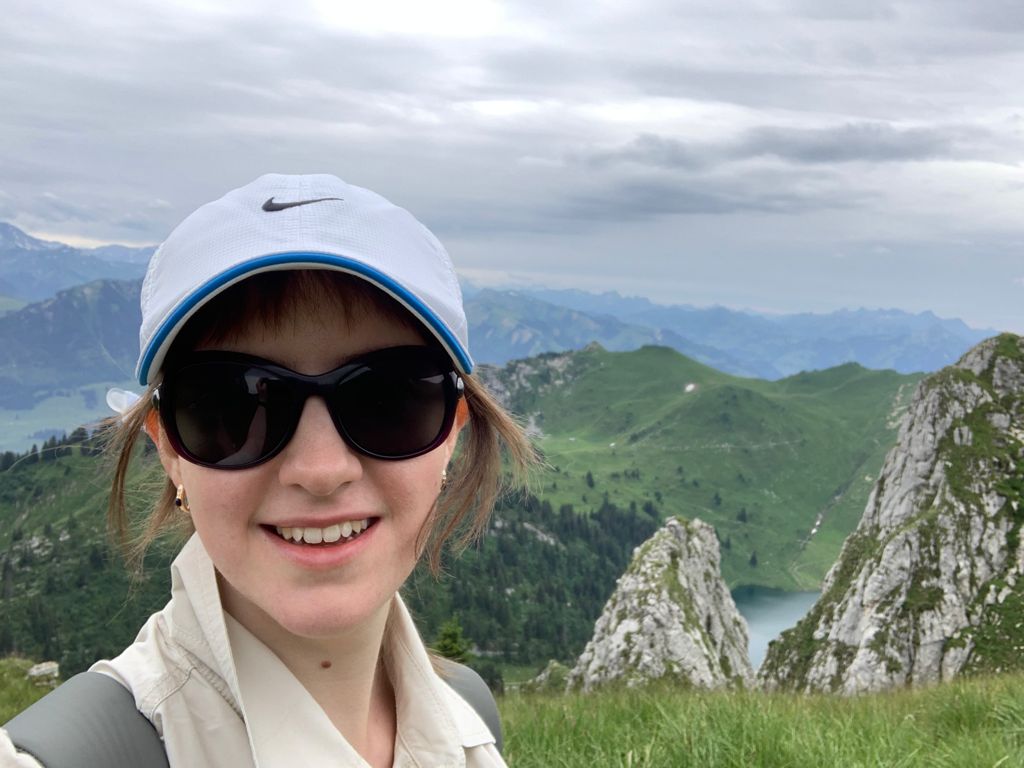
In general, the phenomenon of overconfidence is very common and one of the most stable. For example, it is extremely important to study in relation to decision-making in the legal system. A judge hears a case and then delivers a verdict based on information that was ‘understood correctly’. But how does he hear the case? What is his method of processing information? What happens if he is too self-confident about his own attentiveness and logic? Society needs to understand how to limit the powers of the judge to improve the decision-making process by increasing the time of the hearing, changing the court scenario itself, etc.
Psychologists have also studied this phenomenon, but their methods differ from those of economists. In our case, we define the question posed, build a model, solve the model and draw a conclusion. Therefore, in terms of the accuracy of the results, of course, economists are as impartial and logical as possible.
What other research are you conducting now?
I recently began a study of ‘differences’ and ‘diversity’ with Miaomiao Dong of Penn State University. Let’s say a research university has a team of scientists specialising in different fields, and we ask ourselves: How do changes in the opportunities for communication among scientists affect the diversity of research areas at the university? Can closer communication between researchers affect the quality of their work if we organise joint seminars or provide ‘academic’ break rooms? Will this cause the university’s academic community to become more focused on certain related areas of research or, conversely to become broader and more universal?
We show that the answer varies and depends on the initial quality of communication capabilities. If communication was already good, then improving it will lead to more universality and a wider variety of areas.
We concluded that when a university has good communication among its scientists, each one would use his colleagues’ knowledge effectively
Therefore, a greater variety of research areas is good. Conversely, if the opportunities for communication were poor, then their improvement would lead to a decrease in the variety of areas. People with similar research interests communicate more easily. Therefore, to stimulate such communication, the university should hire people with similar interests.
What is special about the academic and scientific community at HSE University?
In my current position, I really like the fact that ICEF and HSE as a whole are doing everything to ensure that scientists are engaged in science and not paperwork. The great thing about HSE is the support it gives to and the need it has for a wide variety of specialists. ‘Do your research, no matter what area it is. The main thing is to do high-quality work’.
Here they don’t say, ‘We’re not interested in this area,’ as is the case in many U.S. universities where, by the way, young theoreticians are not especially well-regarded. For HSE, everything is valuable, everything is important, and this inspires the scientists who work here. I have a lot of co-authors from different countries and I am well aware of how much they suffer from the administrative burden placed on foreign university professors. In this regard, HSE protects its scientists; ICEF, in particular, goes to great effort to free us from paperwork and bookkeeping. We can happily engage in what we do best.
What determines the quality of scientific work? What constitutes ‘good research’?
When students ask me at the beginning of the year to give some sort of introduction to research, I honestly try to explain to them that the ‘wrapper’ of an academic paper is just as important as its content. It is extremely difficult to ‘sell’ your work without observing the PR standards common to all fields of professional activity. If you think about it, there’s nothing wrong with this — the importance of our research for society is primarily how we integrate our work into the pyramid of knowledge. The results of your work should stimulate other scientists who are thinking about the same phenomena to keep moving towards a solution.
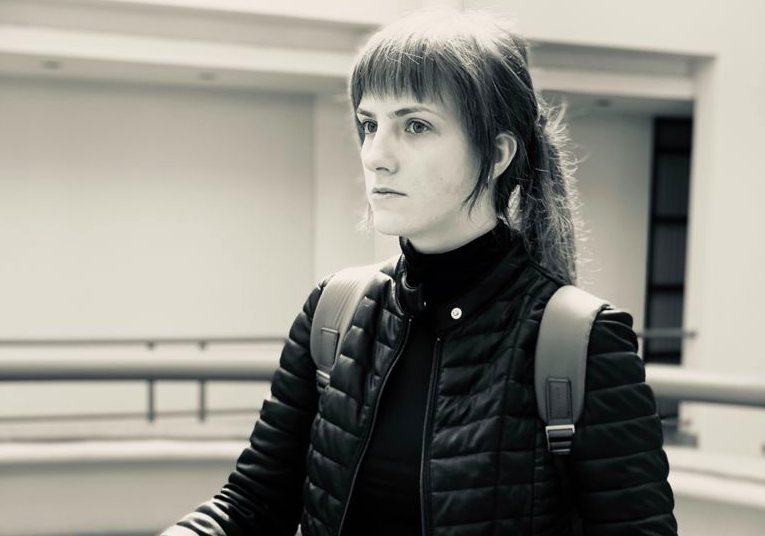
Even if the research process itself did not yield results, it has motivated others to work in the same area, which is very important.
The quality of scientific work is measured not only by publication activity but also by its impact on the scientific community
In fact, your footprint and your communication are important in the academic community and it bothers me that offline events, and particularly conferences, are very limited right now. You can’t present yourself, your interests, articles and hypotheses to the scientific community and look for colleagues for future research.
It often happens that a study is outstanding, but is written unintelligibly. In my opinion, it is necessary to take into account the rules of academic PR in the scientific world. This should be taught to students. They should be introduced to ‘life hacks for making it’ in the world of academicians because this is obviously an important aspect.
What problem would you most like to solve as a researcher?
I have always been interested in the way a person chooses to collect information and I’m striving to move into this phenomenon more deeply. Little study has been made of this phenomenon because, although it is easy to model, it is difficult to find a mathematical solution. The biggest challenge in my work now concerns sources of information — how a person defines them and what influences the method he chooses for collecting data. The results of such work could formulate an effective method for collecting information and making decisions. For example, a search engine can give you the answer to any question, but you need to be able to pose the question, which is important everywhere, in any step that a person takes in life.
What recommendation would you give to students just starting their academic careers?
I can confidently advise senior-year school students and bachelor’s students to study mathematics as deeply as possible. The rest is a superstructure.
I never regretted that I started with mathematics and not economics
My mathematical background helped me a lot at all stages of my studies and scientific career, and many times, I observed the opposite, how students suffered from the lack of such a foundation. Even if you later engage in empirical research, the mathematical apparatus always turns out to be necessary and important. It’s such a versatile tool.
I would recommend that third- and fourth-year undergrads and master’s students preparing for a PhD communicate more with researchers and representatives of the academic world. They should consider finding a supervisor who will take them on as a research assistant. They should offer all possible assistance to other people’s research (collecting data, proofreading articles that have already been written, checking proofs, etc.) and attend seminars and conferences held at HSE and online. And I would advise those who have already been accepted to a PhD programme not to wait until after graduation and to submit their research to scientific journals — even those not in the Top 10 — as soon as possible.
Tatiana Mayskaya
Assistant Professor, International College of Economics and Finance
See also:
Doctoral Student Explores the Challenges Faced by International PhD Seekers During the Pandemic
In late June 2024, a pre-defence of Nurudeen Abdul-Rahaman’s dissertation took place at the HSE Institute of Education. Nurudeen Abdul-Rahaman, a doctoral student from Ghana, has presented his dissertation ‘Academic and Social Integration of Foreign Doctoral Students at Russian Universities during the Covid-19 Pandemic’ for the degree of Candidate of Sciences in Education (PhD).The HSE News Service spoke with Nurudeen as well as his academic supervisor, Evgeniy Terentev, Director of the Institute of Education, about their extensive research on international doctoral students in Russia and Nurudeen's contribution to this research.
‘We Cannot Understand the Modern Ideological Confrontation without the Accusations that Emerged during the Lausanne Process’
Rainer Matos Franco, from Mexico, defended his PhD thesis with honours at HSE University this June. In his dissertation, Rainer Matos Franco examines the history of anticommunism in Europe during the 1920s. The HSE News Service spoke with Rainer and his academic supervisor, Tatiana Borisova, about the significance of the Lausanne Process for the Cold War and contemporary history, the opportunities provided by HSE University for international PhD candidates, and the challenges of working with a vast database of historical sources.
‘My Research Has Evolved into A Broader and More Encompassing Vision’
Seungmin Jin, from South Korea, is researching the field of Explainable AI and planning to defend his PhD on ‘A Visual Analytics System for Explaining and Improving Attention-Based Traffic Forecasting Models’ at HSE University this year. In September, he passed the pre-defence procedure at the HSE Faculty of Computer Science School of Data Analysis and Artificial Intelligence. In his interview for the HSE News Service, he talks about his academic path and plans for the future.
‘Studying at HSE Was a Chance for Me to Get to Know Some Supportive Seniors, Knowledgeable Professors, and Wonderful Friends’
On August 4, 2023, a pre-defence of the thesis on ‘Refugee-Host Community Conflict over Assimilation, Integration, and State Legitimacy: The Case of Rohingyas in Bangladesh’ by Md. Reza Habib will be held at HSE University. The preliminary defence will take place at a joint meeting of the HSE School of Sociology and the International Laboratory for Social Integration Research. Md. Reza Habib shared his experience of studying and preparing his PhD with the HSE News Service.
‘At HSE University, We Receive Substantial Support for Our Research’
Wenrui Zhang, from China, is a recent graduate of theMaster’s in Economics and Economic Policy at the HSE UniversityFaculty of Economic Sciences. Having successfully defended his master’s thesis on the impact of COVID-19 on the incomes of vulnerable groups, Wenrui has set his sights on publishing his research and enrolling in adoctoral programme at the university. The HSE News Service interviewed Wenrui about his achievements so far and his goals for the future, and also spoke to Prof.Elena Kotyrlo, his academic supervisor.
‘It’s a Very Small Area of Political Science, and Working to Redress That Is Very Satisfying’
On March 15, Judas Everett defended his doctoral dissertation ‘The Effect of the Patterns in the Dissolution of Communism on the Transition to New Systems in Eastern Europe’, which investigates the relationship between the demise of communist regimes in Central and Eastern Europe and the quality of democracy in the post-communist regime. The defence took place remotely. His academic supervisor was Professor Andrey Akhremenko of the HSE University School of Politics and Governance at the Faculty of Social Sciences. In his interview, Judas talks about the topic of his research and explains why political science is more important than ever.
‘My PhD Taught Me about Life, Professionalism, Research, and Controlling My Emotions’
Wai Yan Phyo Naing first came to HSE University from Myanmar to enrol in a master’s programme at the Faculty of World Economy and World Affairs in 2015. After graduation, he decided to pursue a PhD at the Doctoral School of International and Regional Studies. On February 16, 2023, he successfully defended his dissertation on ‘Evolution of Myanmar’s Policy Towards China (1988–2020)’.
Pursuing a PhD in Russia: ‘Attractive and Exotic’
After getting his Master’s degree in Computer Science in Rome, Julio Carrasquel decided not to pursue a corporate career in IT, but to move to Moscow to get a PhD at HSE University. As a result, he received a scholarship on the Advanced Doctoral Programme, successfully defended his thesis, and was named one of the university’s Best Teachers. Julio talked with the HSE News Service about his path in academia and life in Russia.
'I Believe That at HSE University, You Can Grow Bigger'
Tharaa Ali, from Syria, got her Master’s in Moscow and is now a first-year PhD student in informatics and computer engineering at HSE University. Below, she talks about the use of AI in learning, winning scholarships, and doing research at HSE University.
‘I Want to See Studies Emanating from Africa Contributing Substantially to Cognitive Science’
Abdul-Raheem Mohammed from Ghana has recently defended a PhD dissertation in cognitive psychology at HSE University via remote procedure. Abdul-Raheem and his academic supervisor, Dmitry Lyusin, talked to the HSE News Service about their cooperation, the advantages and complications of remote PhD defence at HSE University, and the prospects of cognitive science in African countries.


